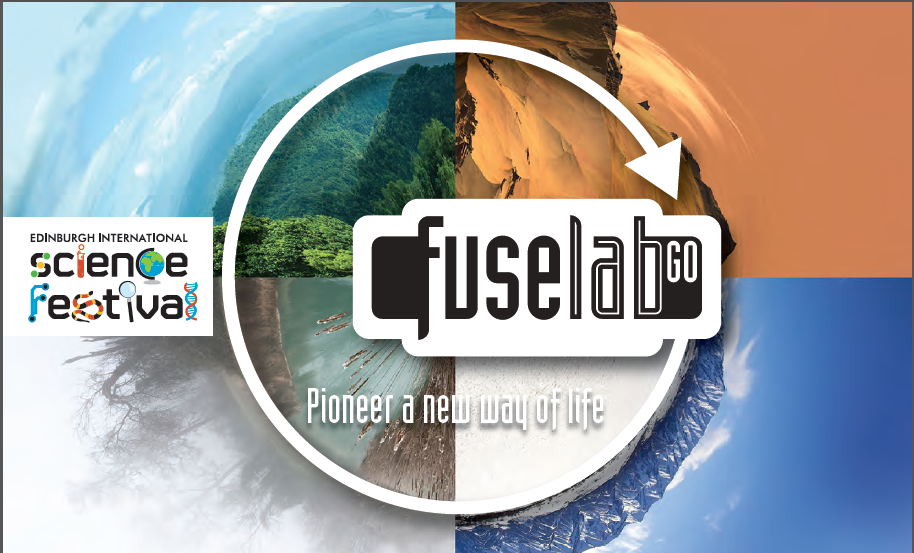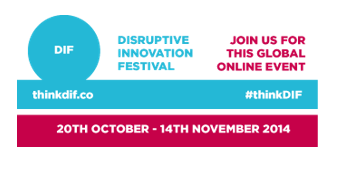We’re looking for participants for the 2015 Fuselab Go tour, an out-of-this-world experience where you’ll help plan the future of an as yet uninhabited world!
If you’re aged 15–18, this is your chance to learn about innovation and creativity and build the skills, networks and confidence that will help you thrive in a fast moving future.
WHAT IS FUSELAB?
Fuselab is an innovation and creativity bootcamp run by Edinburgh International Science Festival. Now looking to recruit the next group of pioneers, so if you’re aged 15-18 this is your chance to get involved!
Fuselab Go is an exciting new touring version of the original programme which was launched back in July 2013. It has been designed to take a fresh, fast and fun Fuselab learning experience to locations across Scotland in summer 2015.
This is your opportunity to think bigger than ever before on a completely blank canvas, developing out-of-this-world solutions to real world problems.
You’ll discover new approaches to challenges through workshops, skills sessions, talks and games that will encourage you to respond both individually and as a group, seeking out relevant skills among your colleagues and collaborating to design, prototype and test your ideas.
Check out the Fuseab website to discover more about the project –
WHAT OUR FIRST PIONEERS THOUGHT ABOUT FUSELAB…
‘I have taken away from Fuselab an even bigger love of the sciences than Ialready had (…I didn’t know that was possible!)’
‘It really pushed me as an engineer and really made me work hard’
‘I loved every minute of it!’
2015 TOUR SCHEDULE AND INFORMATION
Fuselab Go is visiting a host of exciting venues across Scotland in summer 2015. There are 10 sessions in all, each session lasts for two days, happening in 6 cities. Check out the list below to see when the tour is coming to
a location near you:
Edinburgh – 6/7, 8/9 and 11/12 June
Greenock – 15/16 June
Inverness – 18/19 June
Aberdeen – 22/23 and 25/26 June
Dundee – 29/30 June
Glasgow – 4/5 and 6/7 July
You will be expected to make your own travel arrangements to attend each day, but Fuselab is completely free of charge and you will be provided with lunch and refreshments.
HOW TO APPLY
Applications are open now! For your chance to be part of this exciting project, simply read the terms and conditions to ensure you’re eligible to apply and then complete the short application form available online at sciencefestival.co.uk/fuselab
.
You will receive an automated response when we receive your application and successful applicants will be contacted by email by the end of May 2015.
If you have any queries about your application you can contact Fuselab on fuselab@scifest.co.uk but please be aware that due to the high number of applications we are dealing with it may take a few working days for us to respond.





















































































